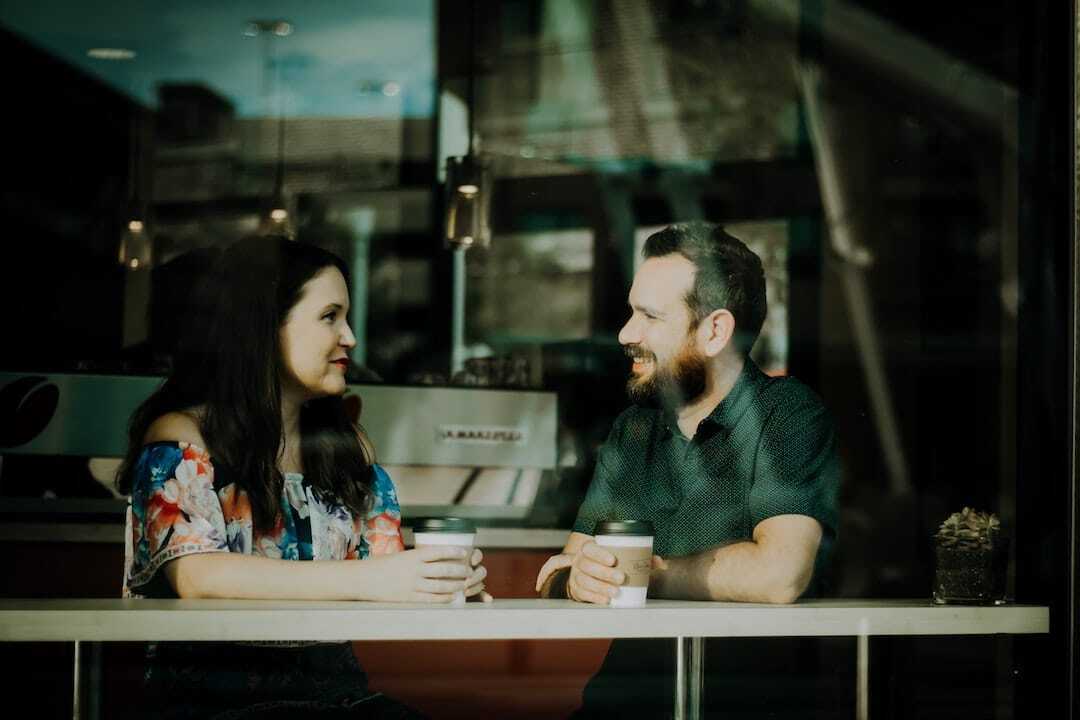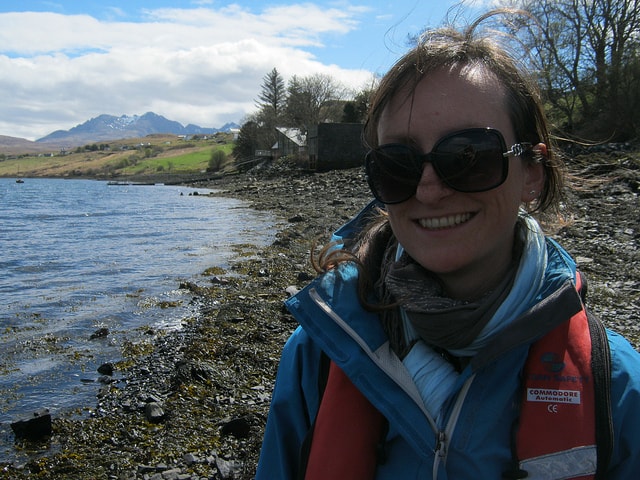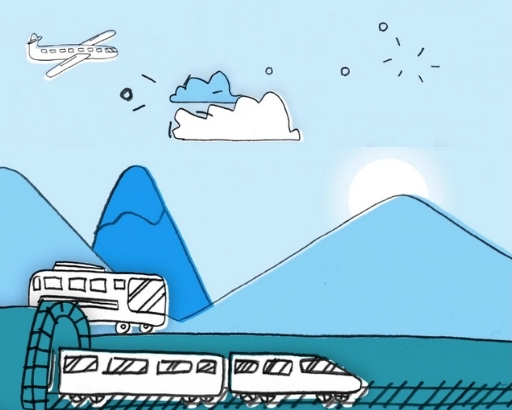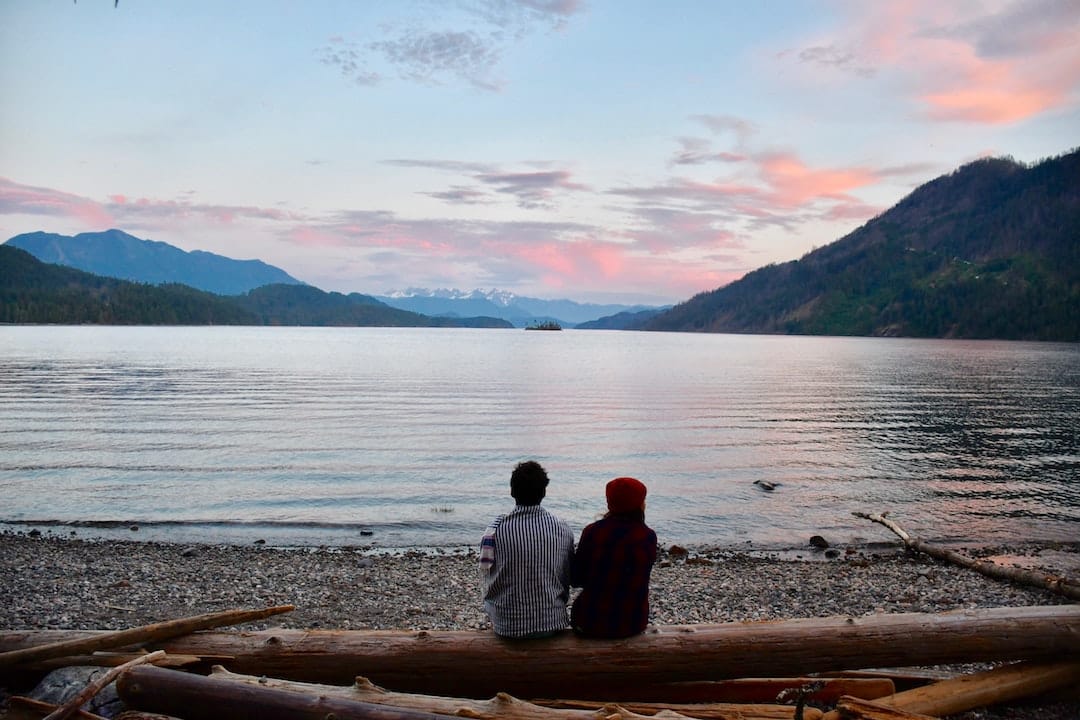
The challenge
For at least a decade I had wanted to challenge myself to a ‘no-fly year’. However, there always seemed to be a good enough excuse to just buy that plane ticket – to a conference, a vacation, or to visit friends and family. Eventually I realised, there would always be an excuse.
"There always seemed to be a good enough excuse to just buy that plane ticket."
The most difficult thing to get my head around was not seeing my family. My immediate family, originally from Colombia, was now living in the US and I had settled in the UK seven years before. My extended family is scattered across even more countries. An entire ocean was separating me from my loved ones, and the only realistic way to see them was to get on a plane.
To me, if I could go an entire year without flying – and not seeing my family in person – all other environmental efforts in my life seemed achievable. I had been interested in leaving the world in a better state than I found it since I was young. I already avoided single-use plastic, re-used and recycled, had decided to forgo car ownership, was big into composting, cycled most places, and tried hard to eat a vegetarian diet. Not flying seemed to be the more difficult choice.
"If I could go an entire year without flying, all my other environmental efforts seemed achievable."
Even though energy production and agriculture are the two sectors that contribute the most to global greenhouse gas (GHG) emissions – about 25% each – the transport sector contributes another 14%. Until we transition into bio-fuels or renewable energy to power our vehicles and aircrafts, fossil fuels will continue to be the primary source of energy for transportation.
The awakening
In April 2017, I had the opportunity to travel in Colombia to places I had wanted to visit since I was a child. My experience in the Sierra Nevada de Santa Marta, staying with the Kogi people who warmly invited me and my partner to their homes, gave me the motivation I needed. We spent four days in the middle of the jungle, sleeping on hammocks, seeing spectacular biodiversity, and sharing with indigenous people. I did not know that places like this still existed in the world, and I am certain they will not be around much longer. All this time, I saw no other tourists or non-indigenous people.
This region is home to four main indigenous groups: the Kogi, Wiwa, Arhuaco, and Kankuamo. Their spiritual leaders are called Mamos. These groups believe the Sierra Nevada de Santa Marta is the heart of the world: what happens everywhere is reflected here and vice versa. When rivers run dry, ice caps melt, endemic species disappear, so do the rest of the world’s. The ecosystem here is changing rapidly, and the people of the Sierra Nevada are very concerned with the state of the natural world.
We had a chance to speak to a mamo, learn more about the aluna, and participate in an ofrenda: a ritual to thank Mother Nature for all it provides and give back in intention and action. This forever changed me.
That same week, we visited some parts of La Guajira further north. It was the week after Easter break and the result of indiscriminate tourism was all around. Most places were completely empty, but you could see that only one week before it had been busy. We saw single-use plastic all over the ground and in the water. Thousands of bags, disposable cups, forks, knives and straws dotted the place. It really shattered our souls to see the state of this otherwise gorgeous backdrop. We went into the ciénaga and were the only ones for miles, surrounded by a spectacle of flamingos… and plastic.
"We saw single-use plastic all over the ground and in the water."
The Decision
Upon my return to the UK I knew I had to expand my efforts to create a more sustainable world. I have worked long enough on environmental and sustainability issues to have sufficient information on the state of our planet and what we need to do to avoid catastrophic ecological and social decline. I needed to take more action in my personal life.
Then, a work trip had to be cancelled, and although it left me frustrated and annoyed, I had a realisation. For a good part of a decade, I had wanted to take a year off flying. Now, I had been forced to cancel some flights. Though I resented the altered circumstances, I realised I had been wishing for this all along! It was then that I made the decision to cancel all air travel for one year.
The (many unexpected) benefits
I hadn’t actually planned the details of this new decision. The only certainty was that I would not be able to see my family over the holidays, which is always the hardest for me. But as time unfolded, things became clearer.
Once you take the first step, you realise it’s not that difficult
As with most things, making the first move requires the most courage.
Once I figured out which conferences and events I could attend by train or public transport, the rest became pretty simple. I found some very interesting online events that I had not known about before, which I continue to participate in even today.
Technology also helped me overcome being far away from my family, especially over the holidays.
Improved bonding
My partner and I began to look into alternative forms of travel. We travelled to many parts of the UK in our solar-powered van. We had done this before, but now we travelled almost every weekend. This meant not only seeing parts of the country I probably would not have otherwise, but also gave us a new space and amazing experiences to grow as a couple.
New places to explore
Besides travelling throughout the UK, we took the van on the ferry to Spain and France and drove around unexplored areas in those countries. We found phenomenal beaches to surf, whilst taking our hotel room along! It really is a more affordable way to travel too.
A journey of self-discovery
When we change how we do things, our perspective changes as well. This is perhaps the most rewarding benefit for me.
Changing this one thing, air travel, which most people did not even have access to only a few decades ago, came with a few personal discoveries as well.
Our van travel made me realise that I want to take more time off for van life. Perhaps a year or two is my goal! And who knows, I may decide to go for it even longer.
The year also helped me reduce some of the pressure I had put on myself to travel all over the world. In some ways, I prefer to avoid the inevitable damage that comes with tourism.
Most importantly, I realised personal change is not as difficult as I had made it out to be.
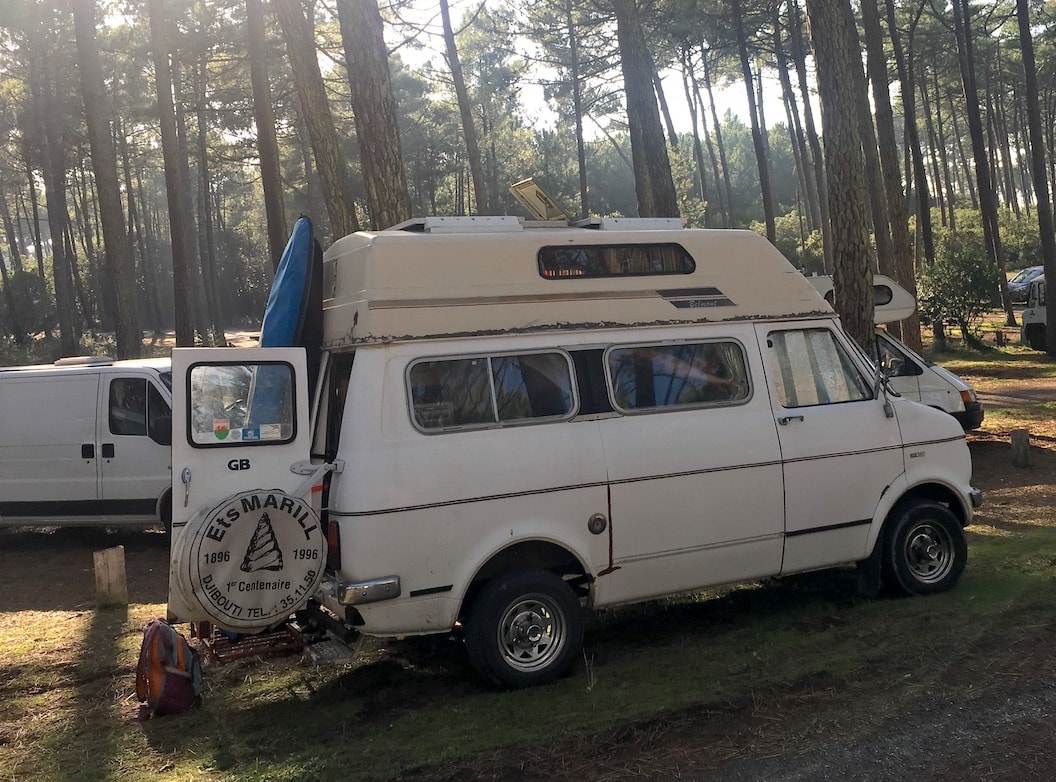
Moving forward
Without planning, or even expecting, this experiment had a lasting effect on me.
Though I have had to fly again to visit my family, it has become almost second nature to look for low-carbon ways of travelling wherever I go. Air travel is my last option when choosing how to get around.
"Air travel is my last option when choosing how to get around."
I have also met incredibly interesting people when I travel. For some reason, airports and planes seem to make people less communicative, or perhaps more stressed.


